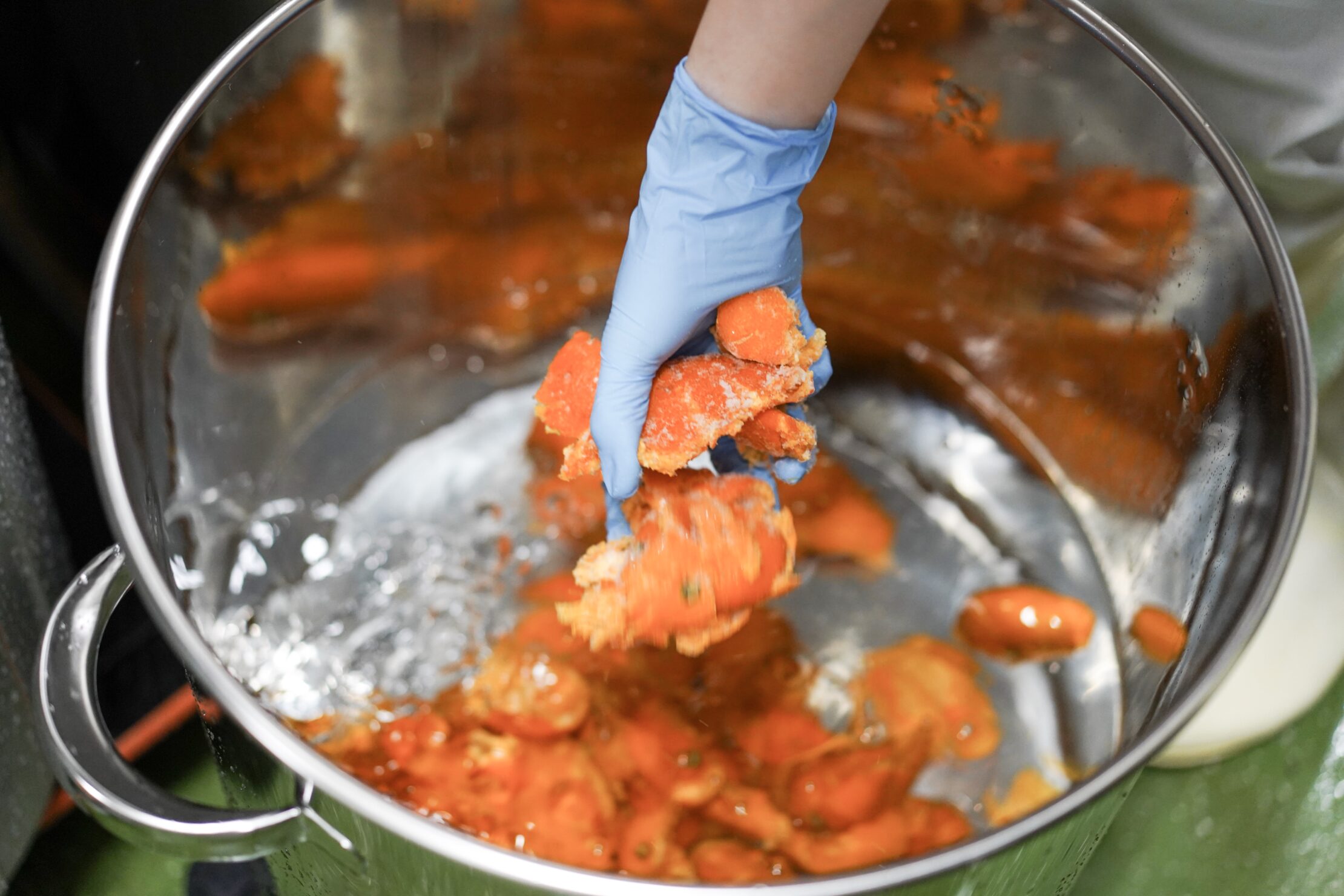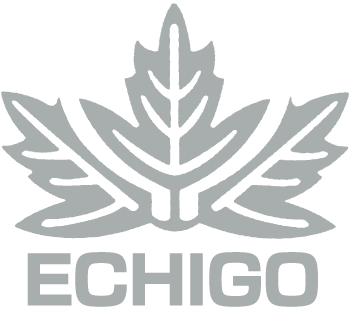Nice to meet you, I am Umeda, YASO's production manager.
I have decided to write a DIARY and hope you will read it.
Here in Niigata, we are beginning to feel spring with each passing day.
Walking around the company, one can hear the trees swaying in the spring breeze and birds chirping.
Although the mood is completely spring, my encounter with Key Botanicals this time was at the beginning of winter.
I was wondering if we could use the mandarin peels that are left over after squeezing for something." It was around the end of last year. Distilling mandarin oranges sounded interesting and I was eager to try it, so I asked for a sample.
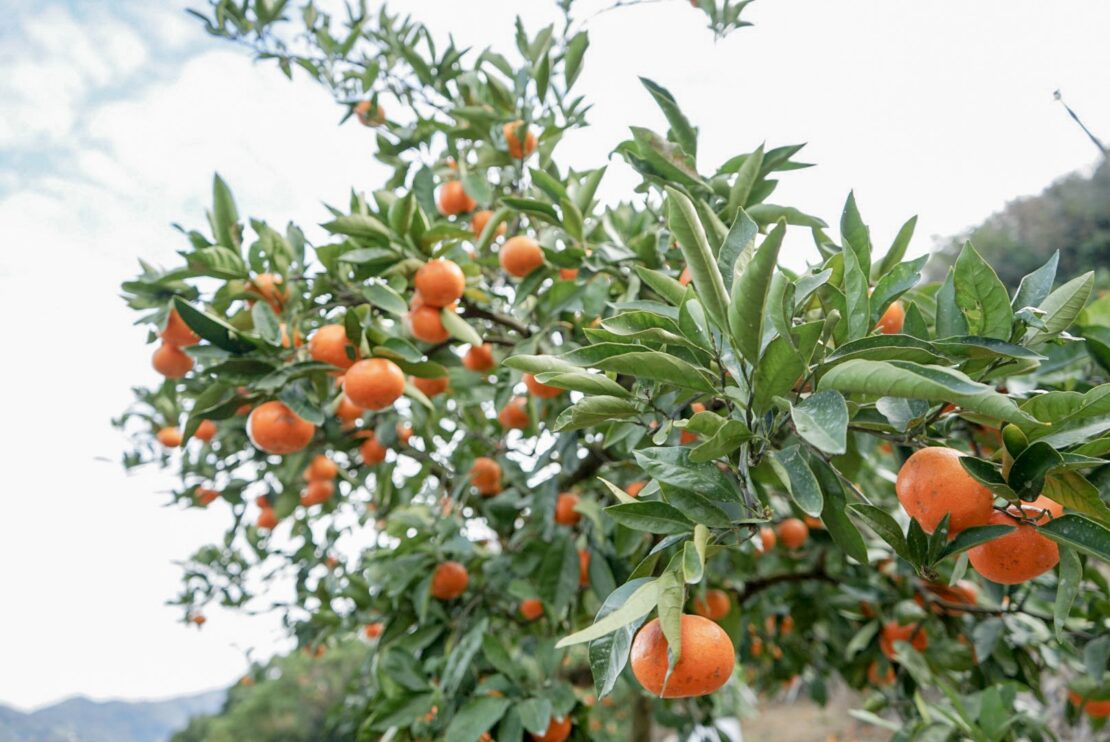
The first mikan we received at the beginning of the year was a variety called Mukaiyama Unshu, produced at Zenbei Farm in Wakayama Prefecture.
According to Mr. Shintaro Inoue, the seventh generation owner of the garden, even the same variety will turn out differently in different environments,
By limiting the production and management to warm and particularly sunny areas near the ocean, they are able to grow better tasting and more aromatic products.
We will distill it in a test distiller as soon as possible.
The distilled liquid has a very nice aroma of tangerine peel and a gentle tangerine scent.
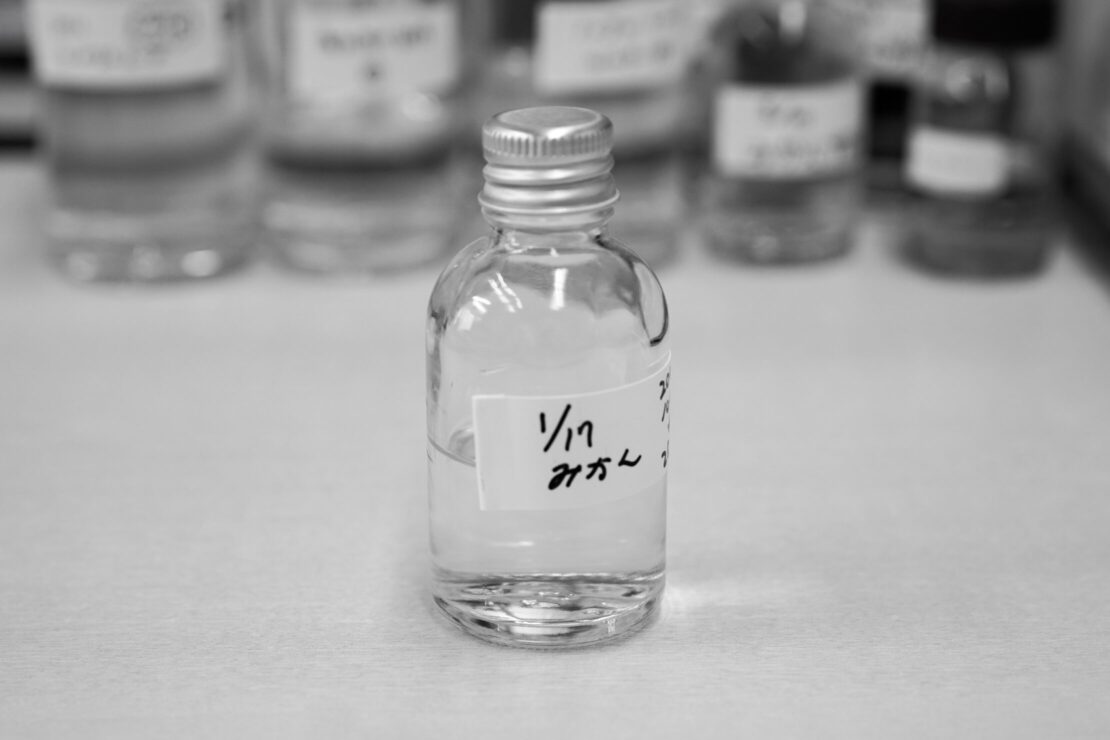
I found it so palpable that I purchased a certain amount and froze it.
When should I distill it, all I had to do was schedule it.
After a few days had passed, I checked the aroma of the prototype distillate and found that there was no scent of mandarin oranges, but a strange, indescribable aroma.
Months passed and we had the opportunity to distill mandarin peels again.
We decided to verify and practice the extraction and distillation methods with reference to the previous situation.
The extraction method involved adjusting the time of immersion of mandarin orange peels in alcohol, so that the distilled liquid was clothed in the scent of mandarin oranges even after several days.
The distillation of mandarin oranges was done by itself.
The scent of mandarin oranges is very common at the beginning of the distillation process, so we actively tried to get it by distilling it alone.
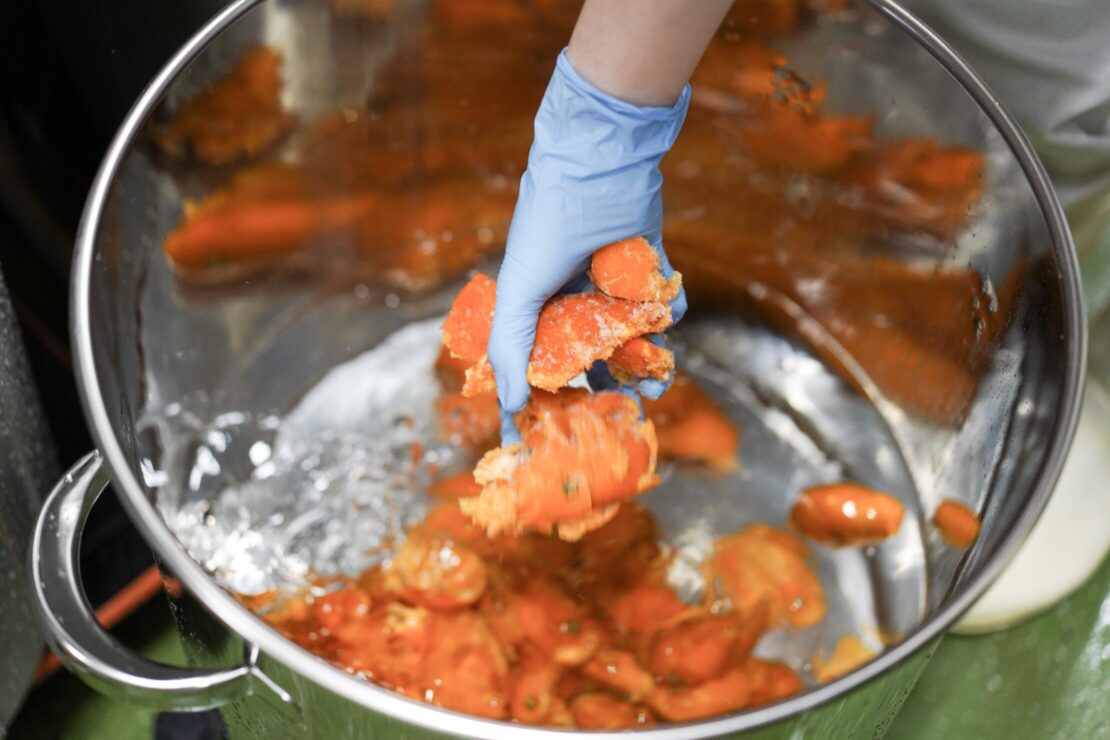
Separately, juniper berries, herbs, and spices are blended to distill the base of the gin, but we increased the filtration process more than usual so as not to muddy the mandarin orange flavor.
These distillates are blended to explore the proportions.
The recipe was completed after a long process of searching for the ideal conditions, as the aroma and taste would completely change depending on the proportions.
From here, the distillation goes into production based on the recipe.
Compared to the test, the distillation equipment will change and the amount of raw materials used will increase, so adjustments will be made while actually distilling.
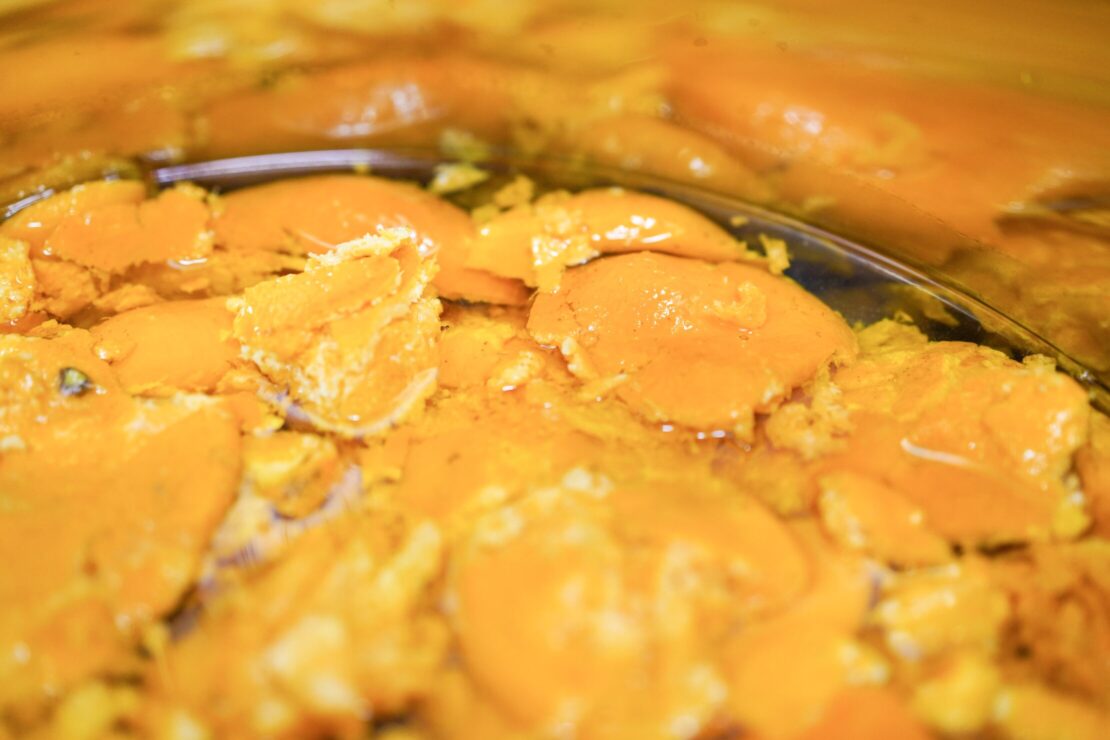
In this case, we distilled the mandarin oranges alone and the gin base several times to several dozen times, so we adjusted the distillation conditions and the amount of raw materials, etc., so that the results of the first distillation were used in the second distillation, the results of the second distillation were used in the third distillation, and so on.
Since the scent of mandarin oranges is gentle, we had to keep it from fading away while bringing out other scents, so we had to worry a lot during the distillation period, but that is also what makes it fun and interesting.
I personally recommend a gin and tonic for this gin.
The bitterness of the tangerine peel is pleasantly tonic water.
I would also like you to try it with water as it was also good.
The launch will be on April 15, please.

